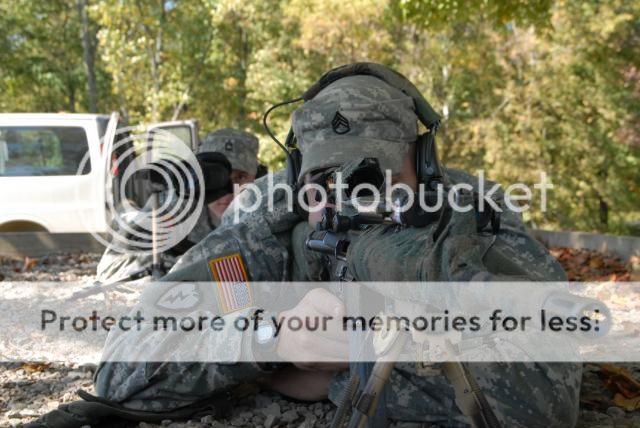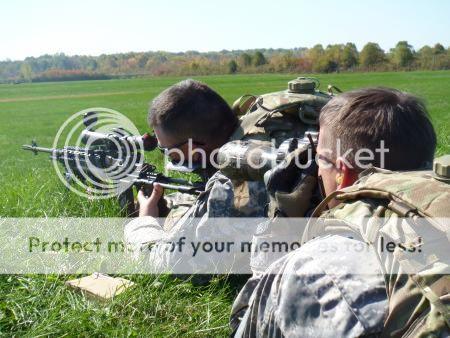J E: I am not by any means trying to flame your judgment. I have looked over your website and I can see that you do some nice work. Your Brake design would be one of the more effective ones out there just based on the physics of it.
I know you meant to say a minor diameter of .460 as you calculation ends up with the correct number. Still, a quick review of the Brownells catalog turns up a variety of brakes with 1/2-32 and 1/2-28 threads in up to .30 caliber. Lynwood Harrell even makes them in 7/16-32 (Presumably for up to .22 caliber.
Your safety margin of .150 might be appropriate for very large brakes and is certainly not a bad thing. The Industry standard (of 1/2-28 for up to .30 caliber) has been in use for a very long time, and I just think it has been proven to be perfectly adequate for the smaller brakes that it is normally used with.
A wall thickness of just over 1/16 of an inch AT THE MUZZLE does not worry me at all.
Don't worry about it. I don't take offense to someone that disagrees with me, Because I surely
don't claim to know everything.
This question had came up many times so instead of going on hearsay or past practice, I decided
to do lots of research and find a definitive answer for barrel thickness requirements.
What I found was that Barrel makers will not flute a barrel that has less than .140 thousandths
wall from the bottom of the flute to the bore, there engineers were adamant about not going below the .140 to .150 thickness for safety.
The old philosophe was that the brake added some strength to the barrel tenon as long as the threads were in 100% contact. we all know this is next to impossible and cant be depended on.
The fact that it has been done doesn't make it safe and with the higher pressure cartridges a lot of manufactures are changing to the stronger Thread and tenon sizes. (Pressures in the past were normally 47,000 psi to 55,000 psi. Now pressures of 65,000 to 67,000 are common on the newer cartridges, so the "OLD" rules and practices need to be amended for safety.
If you have ever seen a barrel split or a brake shot off a rifle you will under stand the need for improvement.
All I can do is warn People of the impending danger if some practices are used. If they decide to
continue taking risk doing something marginally dangerous that is their call.
A firearm is inherently dangerous by the nature of It and every precaution should be taken when modifying one to go beyond the normal design and practice (Especially if one is not a gun smith
and has limited experience with firearms).
On an earlier post I read where if you tighten the brake to much It would reduce the bore diameter effecting accuracy. A Brake should not be able to reduce the barrel diameter at all If the thread tenon is the correct size.
I don't consider my self a "Master Gunsmith" by any means, so I ask questions that I am not sure about from some of the guys on this site that we are fortunate enough to have that are Master Gunsmiths and will keep us out of trouble.
The only dumb question is the one not ask.
Sorry about the rant, but I see a trend of do it your self people that think there is nothing to
working on guns and don't realize the potential for disaster. You don't have to use one for many things, but for the pressure parts at least get there input before stepping off into some that potentially could hurt you or someone else.
J E CUSTOM


